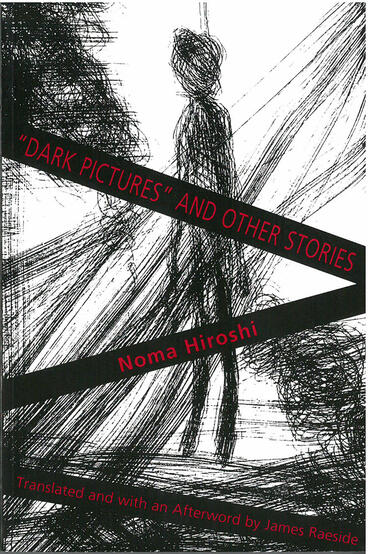“Dark Pictures” and Other Stories
Dark and haunting stories of young men whose universal desires and anxieties are overshadowed by memories of the brutality of war
Description
Noma Hiroshi (1915–91) was a prominent postwar novelist who engaged deeply with French modernism and contributed to left-wing thought throughout his life. The short stories that Noma Hiroshi produced in the years of confusion and self-questioning after World War II struck a deep chord in his readers. In the three stories contained here—“Dark Pictures,” “A Feeling of Disintegration,” and “A Red Moon in Her Face”—the main characters are all young men who have lived through the war but have emerged far from unscathed. The “dark pictures” of the title refer to paintings and engravings by Brueghel, which the protagonist and his friends had viewed together. The miseries depicted in Brueghel’s work seem in retrospect to encapsulate all the miseries the main character has suffered since seeing his friends: persecution, self-doubt, sexual anxiety, warfare, imprisonment, bombardment, and the miseries of life in Japan after the defeat. The other two stories are set in the postwar world of black marketeers and bombsites, but they too concern young men whose universal anxieties about sexual desires and their place in the world are overshadowed by memories of the brutality of war.
James Raeside is Associate Professor at Keio University in Japan. In addition to translating Noma Hiroshi, he has written on Kawabata Yasunari, Mishima Yukio, and Dazai Osamu.
Reviews
"Noma Hiroshi presents a harrowing picture of economic hardship and psychological trauma. These are important tales of personal perseverance."—Publishers Weekly
"The effects of war and militarism are integral to the three novellas in this collection . . . Hiroshi's stories of emotionally crippled veterans are as relevant as stories from the Vietnam era."—Al Hikida, MultiCultural Review
". . . moving accounts of painful psychological devastation resulting less from actual battle with an enemy than from the experience of sharing life with fellow soldiers brutalized by hunger, pain, and abuses heaped upon them by their own officers."—Patricia L. Parker, World Literature Today
"Despite the considerable body of Japanese fiction dealing with the aftermath of the Pacific War, readers will still find Noma Hiroshi's stories to be moving accounts of painful psychological devastation resulting less from actual battle with an enemy than from the experience of sharing life with fellow soldiers brutalized by hunger, pain, and abuses heaped upon them by their own officers. These are 'dark pictures' indeed."
- Patricia L. Parker, Hiroshima College of Nursing
--Patricia L. Parker, Hiroshima College of Nursing, World Literature Today, April 2001

